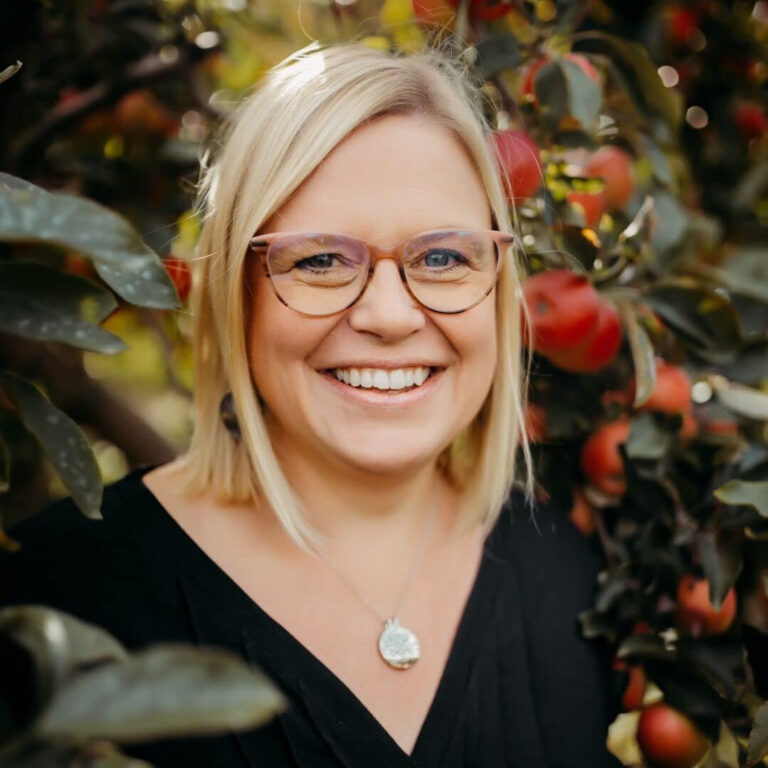
Over the last year, I’ve visited dozens of book clubs, libraries, and classes to share about my novel, Enemies in the Orchard: A World War 2 Novel in Verse, a historical fiction novel about the US government program that loaned out German soldiers as farm labor.
The most common question I receive from adults is why I chose to write the novel in verse or poetic form.
I have no doubt that the book’s format has scared some readers away, especially adults who open the first pages and are immediately wary about their capacity for poetry. Many confess to me, sometimes in whispers, “I wasn’t sure I could read a book written like this.” But then they also admit to discovering it was pretty easy, once they got accustomed to it.

This nervousness is understandable. For many, their only experience with poetry came from an English class, where it was treated more like a puzzle to be solved than a gift to be appreciated—poetry became a secret code to be cracked, often through right answers and multiple-choice questions.
A novel written in verse still tells a story, I assure readers, it just does so a bit differently, with brevity that gives you room to pause and reflect. There’s not a right—or a wrong— way to read it.

Middle schoolers, however, are less afraid. If you hold open a novel in verse and ask a middle schooler, especially one who might be a reluctant reader, “Would you be willing to try this one?” their eyes usually light up. On the page, they see the promise of ease: more white space, fewer words, bigger margins, and less to “get through.” (Please, if you have a moment, listen to Jason Reynolds talk about how “white space, for an intimidated reader, adds breathability to a seemingly suffocating task.”)
In today’s world of instant communication, perhaps it’s a bit of a paradox that the very attribute that lures many middle-grade readers into a verse novel—its white space—allows them to read faster while at the same time granting permission to slow down.
This November, when the days have darkened, the weather has been dreary, and the news has felt dim, I’ve been trying to remember the wisdom of slowing down. Of giving more space.

Not every silence needs to be filled, not every heartache needs to be mended, and not every venting session needs a solution.
I’m an oldest child, an Enneagram 2×3 (an achiever who wants to help you, but sort of because then I’m achieving), who would love nothing more than for everyone around me to be happy and get along. I would prefer fixing it over facing it.
And so, in these days after the election when the divide between our neighbors seems larger than ever, I find myself rushing to fill the void. I search for someone or something— a post, video, podcast, blog, sermon, or maybe a plate of nachos— to help it all make sense. Oh, how I sympathized with the poor writer who volunteered to blog the day after the election. (I’m looking at you, Jeff Munroe.)
While reading, discussing, and sense-making can be good and healthy, I’m leaning into the need for some white space, too. I’ve been reading more poetry over the last few weeks. A second paradox: it’s often in the lack of trying to make sense that we find the most. It’s in the refusal to accept easy answers that we find something not quite like comfort, but presence.
The same is true in my interactions with people—people who are hurting for all different reasons in this season. It’s so easy to want to rush in and fix, to try to supply answers or explanations. Giving space can be harder. And better.
A friend once jokingly asked me how I managed to publish a “full” novel while only using half the usual words. The answer, of course, is that it was just as much work.
Often saying less takes as much energy as saying more. Leaving room for white space isn’t a lack of intention, but more of it. It’s about trust—not in ourselves, but in the spirit’s ability to do more than we can ask or imagine or muster.
A final paradox: maybe knowing we can’t do it all, what’s beyond our control, opens us up to the possibility of the next step we’re called to take.
The ability to hold space could be a gift of this season. There is no puzzle to be solved today, no test.
Just space.
Header photo of notebook by Kelly Sikkema on Unsplash
Gloom photo by KoolShooters on Pexels:


8 Responses
Dana,
Thank you for this–all of it, but especially, “Leaving room for white space isn’t a lack of intention, but more of it. It’s about trust–not in ourselves but in the spirit’s ability to do more than we can ask or imagine or muster.”
I’m letting that line fill the white spaces of this new day.
Me too.
I absolutely agree, Mark! That line really stood out for me as well. Intentionally inviting a reader into relationship with the story is an act of faith and respect that honors both the reader and the questions the story presents. And I do believe we do more of our living within life’s questions than in the confines of their answers.
Holding space for what we do not yet see clearly. Where many of us are. Beautiful thoughts. Thank you.
I too have been sitting in some much needed white space the past few weeks.
I’m in good company then. It doesn’t always come naturally to me, but I’m better off when I leave some larger margins in my days.
Thanks for naming it, Dana. It’s tough for word people to be wordless for a while.
We’re never gonna give up, are we, Dana! We’re gonna unlearn ‘em yet. “ Poetry is the art of using words to create that for which there are no words”.